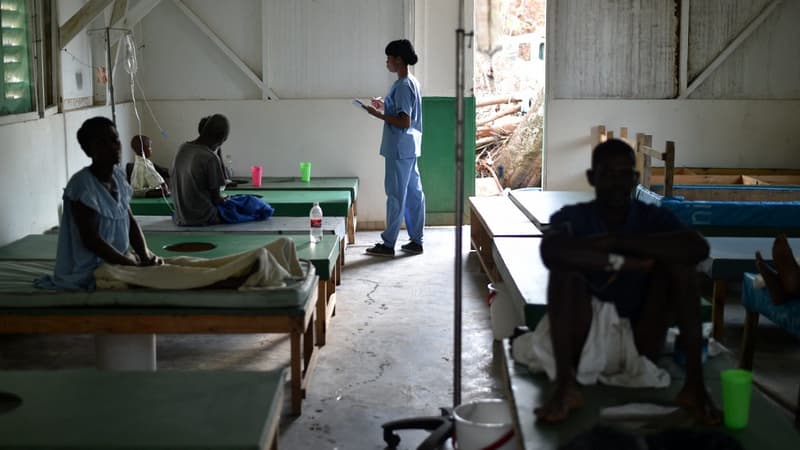At least seven people have died of cholera in Haiti, authorities announced Sunday, reigniting fears of a resurgence of the disease in this poor Caribbean country where an epidemic killed more than 10,000 people between 2010 and 2019.
The Ministry of Public Health and Population had announced a few hours earlier “the detection of a confirmed case of cholera in Savane Pistache Décayette in the Port-au-Prince commune and suspected cases in Brooklyn in the Cité Sun commune.”
Request to remove concurrent posts
During a press conference, the director general of this ministry announced that seven or eight people had succumbed to the disease.
“Most of the victims died in their neighborhoods and could not get to the hospital,” explained Lauré Adrien, advocating for the roadblocks established in the country to protest against the increase announced on September 11 in the price of fuels that they lift to allow patients to access health centers or ambulances to be able to reach them.
The ministry had said on Sunday afternoon that it had taken steps to try to prevent any spread of the disease, in particular by investigating the possibility of other cases. He also called on the population to be cautious in adopting hygiene measures.
Disease introduced by peacekeepers in 2010
Introduced by UN peacekeepers in 2010, the bacteria that causes cholera killed an estimated 10,000 people in Haiti.
Blue helmets had thrown feces into the Artibonite River, and the first cases had appeared in this region, before the epidemic spread throughout the country. The UN only acknowledged having played a role in the introduction of cholera in August 2016.
The Ministry of Public Health had organized a ceremony in February on the occasion of the official elimination of cholera in Haiti, the last case having been identified -before those announced on Sunday- in 2019.
Prime Minister Ariel Henry then declared: “This February 4 represents a model of political and civic engagement, which will remain a memorable date in the annals of public health history.”
Source: BFM TV


